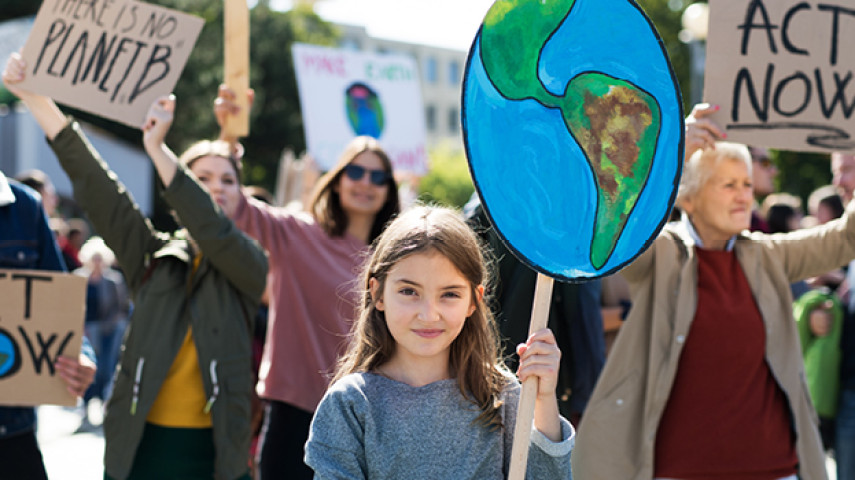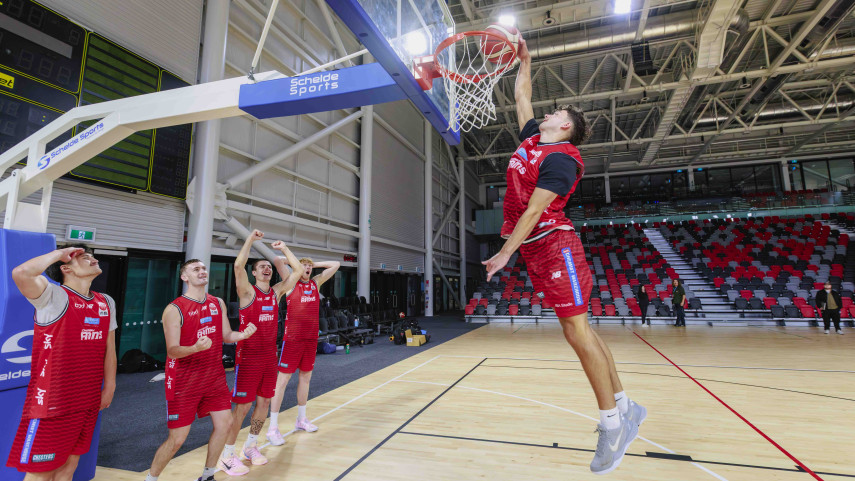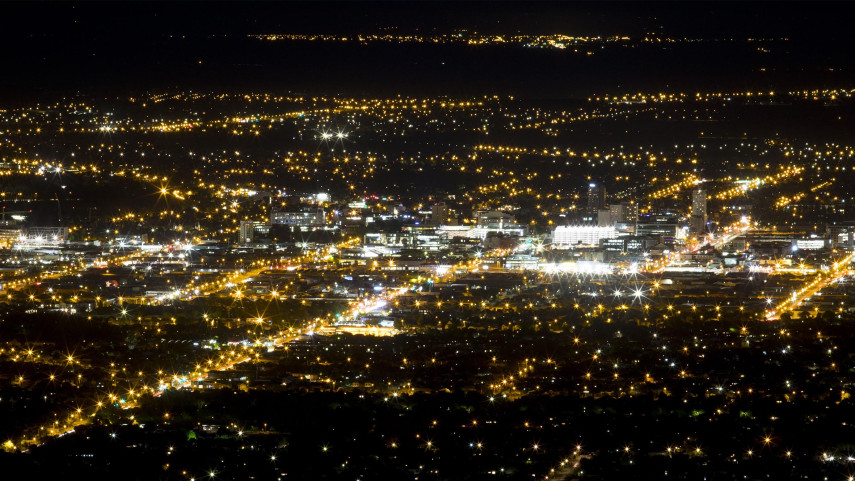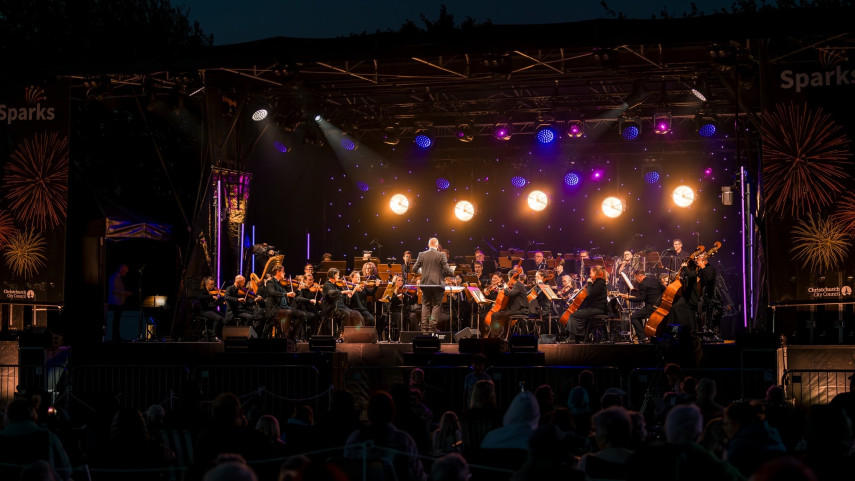What is climate change and how will it affect our city? Help to future proof our planet through fun activities that investigate how we can respond to climate change.

Book a Learning Through Action school programme
Risk analysis and management information (RAMS) will be sent out once a programme booking is confirmed. If you require this at any other stage please email LTA@ccc.govt.nz or contact us(external link).

| Year level | 5 to 13 |
|---|---|
| Curriculum Level | 2 to 8 |
| Availability | Year-round |
| Times | 9.30am to 12noon or 12.15pm to 2.30pm |
| Site | Botanic Gardens |
| Cost | Free |
| Number of students | Maximum of 35 |
| Special requirements | None |
- Climate change
- Greenhouse gas emissions
- Sustainability
- Mitigation
- Adaptations
What is climate change and how will it affect our city?
Help to future proof our planet through fun activities that investigate how we can respond to climate change.
Students will learn about the role of transport, energy, food, and clothing, and leave the programme feeling empowered to make a difference.
We are learning to:
- Explain the difference between the greenhouse effect and the enhanced greenhouse effect.
- Understand that greenhouse gases stay in the atmosphere and can change the climate in harmful ways.
- Identify key human actions that are causing climate change.
- Name the biggest sources of greenhouse gas emissions in Christchurch.
- Identify the local effects of climate change.
- Identify key actions we can take to reduce emissions in the key areas of transport, energy use, agriculture, and consumerism.
- Explain how carbon sinks can store carbon.
Using language, symbols and texts
Students will use oral, written, and visual texts to understand key terms.
Thinking
Students will use creative, critical, and metacognitive processes to consider the consequence and real-life meanings of climate change.
Managing self
Students will be encouraged to manage themselves both in groups and independently.
Participating and contributing
Students will problem-solve to come up with solutions to tasks.
Relating to others
Students will be expected to work together in different grouping arrangements and to maintain effective interactions with their peers in a range of contexts offered through a variety of activities.
Future focus
Sustainability: Exploring the long term impact of social, cultural, scientific, technological, economic or political practices on society and the environment.
Citizenship: Exploring what it means to be a citizen and to contribute to the development and wellbeing of society
| Curriculum area | Strand and level | Objective |
|---|---|---|
| Science Pūtaiao |
Nature of Science Levels 3 to 8 |
Investigating in science Communicating in science Participating and contributing |
| Living World Levels 3 to 8 |
Life processes Ecology Evolution |
|
| Planet Earth and Beyond Level 3 to 8 |
Earth systems Interacting systems |
|
| Social Sciences Tikanga ā-Iwi |
Levels 3 to 5 | Social studies |
| Levels 6 to 8 | Geography |
Level 1
| Subject | Standard |
|---|---|
| Agricultural and horticultural science | 1.5 AS90160 |
| Chemistry | 1.3 AS90932 |
| Geography | 1.3 AS91009 1.6 AS91012 1.7 AS91013 1.8 AS91014 |
| Science | 1.6 AS90945 1.12 AS90951 1.14 AS90953 |
| Social Studies | 1.4 AS91042 1.5 AS91043 |
Level 2
| Subject | Standard |
|---|---|
| Agricultural and horticultural science | 2.10 AS91298 |
| Earth and space science | 2.2 AS91188 2.3 AS91189 2.5 AS91191 |
| Education for sustainability | 2.1 AS90810 2.2 AS90811 2.3 AS90813 2.6 AS90814 2.4 AS91733 2.5 AS91734 |
| Geography | 2.6 AS91245 2.7 AS91246 2.8 AS91247 |
| Social studies | 2.4 AS91282 2.5 AS91283 |
Level 3
| Subject | Standard |
|---|---|
| Agricultural and horticultural science | 3.5 AS91532 |
| Business studies | 3.6 AS90848 |
| Chemistry | 3.3 AS91389 |
| Earth and space science | 3.2 AS91411 3.5 AS91414 |
| Education for sustainability | 3.1 AS90828 3.4 AS90831 3.2 AS91735 3.3 AS91736 |
| Geography | 3.3 AS91428 3.6 AS91431 3.7 AS91432 3.8 AS91433 |
| Social studies | 3.1 AS91596 3.4 AS91599 3.5 AS91600 |
Related news

Canterbury Rams and Mainland Pouākai to light up the show court at Parakiore
Parakiore is officially the new home of the Canterbury Rams and Mainland Pouākai basketball teams.
18 Feb 2026
Exemption granted for central city noise plan change
Work will continue on the Central City Noise plan change.
13 Feb 2026
Celebrate Valentine’s Day at Mitre10 Sparks
Mitre10 Sparks will light up the skies this weekend with a special Valentine’s Day themed concert at Hagley Park for lovers of free, open-air music.
9 Feb 2026